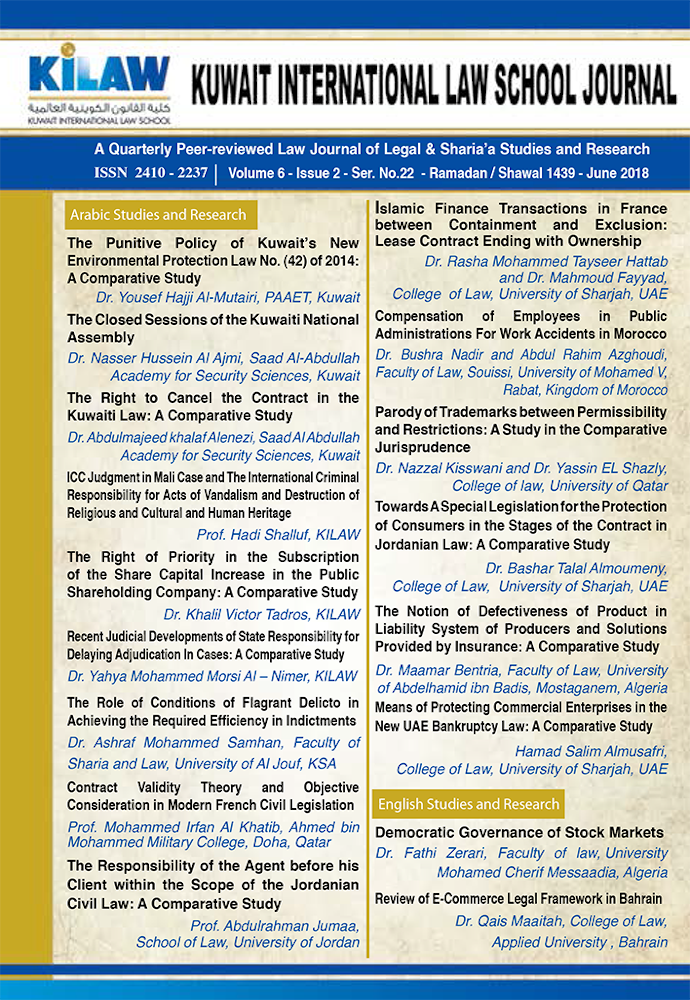Chief-in-Editor Prof. Badria A. Al-Awadi
The current edition (June 2018) is considered the last issue to be published in accordance with the previous publication rules. Accordingly, the Editorial Board, in an exceptional action of appreciation and respect for the efforts of researchers who chose the journal to publish their research, by listing of (17) research in order to allow for the publication of as many researches as possible which submitted several months ago and was approved for publication earlier. At the same time, the editorial board renewed contact with several researchers, whose research is being listed for published in future issues, in order to review the final versions of their research. They contact the researchers as well who are currently refereed their research to encourage them to working according the new publishing rules. In addition, the Editorial Board will seek to address the researchers at the beginning of the new academic year (2018-2019), inviting them to publish in their journal in accordance with the new rules.
The increasing demand of researchers and legal thinkers in the various Gulf and Arab universities to publish in our journal over the past few years is a positive sign of the scientific and academic approach in which the journal works, by providing opportunity to all researchers from east and west to participate without any obstacles. This is also an incentive for them to contribute to the development and renewal of subjects and methods of academic research in the field of legal, economic and other studies. The new publishing rules are one of the features of this trend and will be followed by other steps. In this context, the Editorial Board of the journal is always looking forward to the cooperation of researchers and administrative and academic bodies to achieve the common interest in promoting and spreading the values of academic research and the dissemination of legal thought based on creativity, innovation and constructive criticism.
The new publishing rules early published in the first pages of each issue starting last March are in short, a direct call for innovation and creativity in selecting legal research subjects to confront and address contemporary societal and international issues of importance and impact on the lives of people and communities rather than relying on repeated and old themes, which does not offer anything, as these rules call to get rid of the traditional methods of thematic and the adoption of modern , direct, critical, and comparison approaches .
There is no doubt that a large number of researchers and legal thinkers in Arab and foreign universities adopt these rules and ideas. We have noticed this in many researches published in the journal, and other Arab and foreign legal journals. From our part, we welcome them and all researchers who are looking to contribute to the promotion of the development and renewal of legal research and thought.

